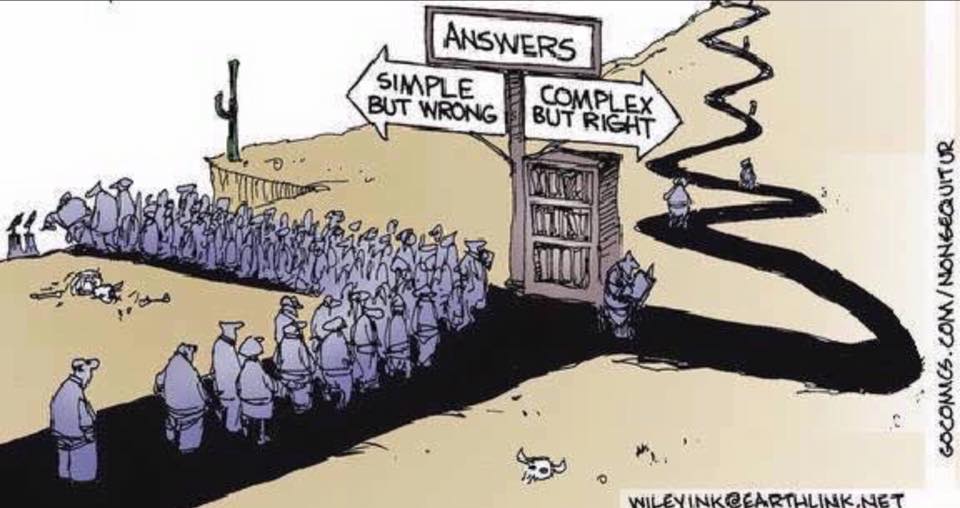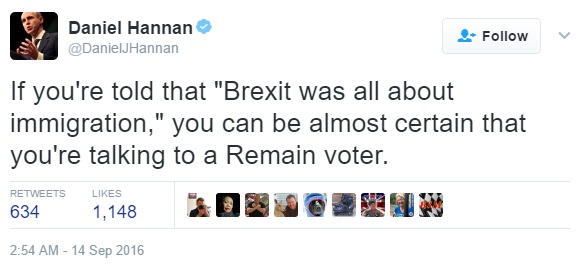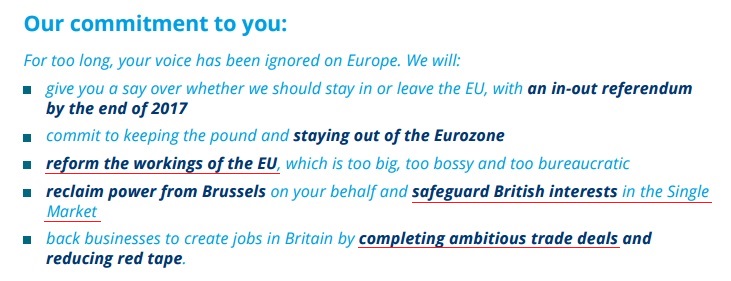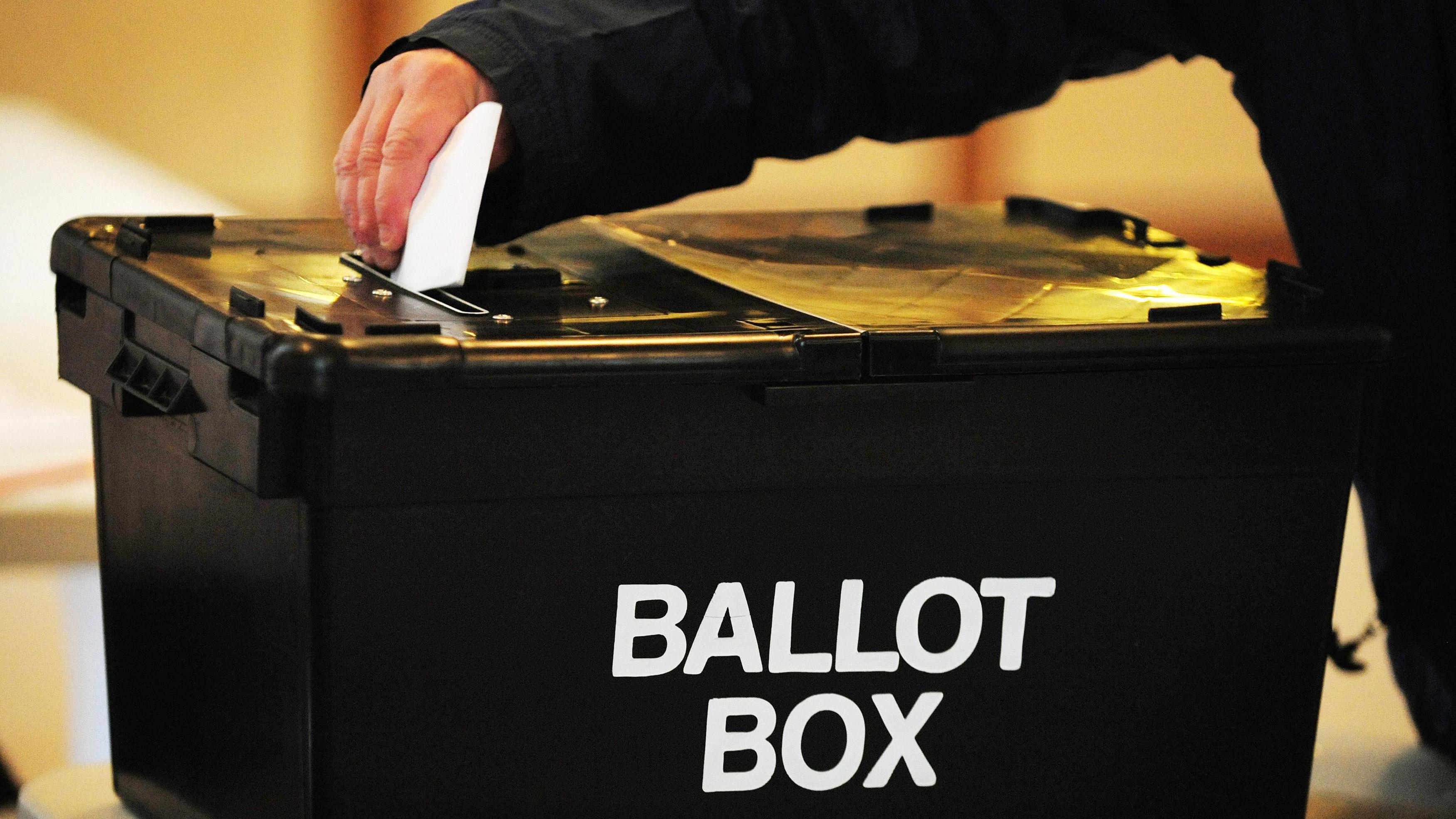 Keir Starmer QC MP
Keir Starmer QC MP
House of Commons
London
SW1A 0AA
February 10th 2017
Dear Keir,
Why did you become an MP?
Your previous job, as director of public prosecutions, was better remunerated, so it can’t have been for the money. You seem a humble and conscientious sort, so I doubt it was for the glory. Was it, then, because you wanted to make the world, or at least your country, a better place? I ask because I’ve been wondering whether your actions of late are fully consistent with that aim.
I’m not a religious man, but I’d like to quote you a passage from the Bible that offers an insight into the wisdom of crowds.
Now at the feast the governor was accustomed to releasing to the multitude one prisoner whom they wished. And at that time they had a notorious prisoner called Barabbas. Therefore, when they had gathered together, Pilate said to them, ‘Whom do you want me to release to you? Barabbas, or Jesus who is called Christ?’ For he knew that they had handed Him over because of envy.
The governor said to them, ‘Which of the two do you want me to release to you?’
They said, ‘Barabbas!’
Pilate said to them, ‘What then shall I do with Jesus who is called Christ?’
They all said to him, ‘Let Him be crucified!’ (Matthew 27:15)
The argumentum ad populum – the contention that something must be right simply because most people believe it to be so – has been recognised as a fallacy since Thucydides. The unspoken truth behind the representative democracy we have accepted as our political system is that ordinary people are not good at governing themselves.
Ordinary people do not have teams of advisers. Ordinary people do not have a civil service to carry out exhaustive research on the pros and cons of any proposed policy. We do not always have top-drawer educations, or the luxury of spare hours to meditate on problems. Few of us are able to see even the small picture clearly, never mind the big one. This is why we entrust MPs with the running of the country.
Never has there been a more exquisite demonstration of this point than the EU referendum. It’s clear beyond a shadow of doubt that hardly any Britons – on either side – bothered to acquaint themselves even fleetingly with the workings of the European Union, or the benefits and drawbacks of membership, prior to the vote. Those who did found themselves confronted with hysteria, hyperbole and rampant disinformation.
Even now, when I engage in online discussions with Leave voters, I find the majority still parroting the flagrant falsehoods published in the Sun, Mail and Express and on far-right conspiracy websites such as Breitbart and Infowars: lies about bendy bananas, lies about EU accounts never being signed off, lies about Turkey’s imminent accession and David Cameron’s World War Three (it was, as you know, a triumphant bit of straw-manning from Boris Johnson).
While I do not doubt that some people voted Leave in good faith and in full possession of the facts, some of the reasons I have seen and heard have ranged from the trivial to the downright absurd.
Even before the vote, it was clear that many of these motivations were incompatible. Opponents of free movement, for example, cannot possibly have their wish at the same time as those who want to create a flexible, deregulated “European Singapore”. We cannot both drastically reduce immigration and give more money to the NHS. Whatever shape Britain (or, as seems likely, its former component parts) is in when Brexit is over, a sizeable proportion of Leavers are going to be bitterly disappointed – on top of all the Remainers, and many of those who didn’t vote.


No one can say with certainty how deep and lasting the damage wrought by Brexit will be. (That fact alone should have been deterrent enough.) Most of the unaccountably maligned “experts” are pessimistic: between 3% and 9% off the country’s GDP, job losses in the tens or even hundreds of thousands, cooperative enterprises such as Erasmus and Cern wrecked, reduction in revenue for universities, loss of tax and talent from the skilled migrants now making plans to work elsewhere, and a colossal dent in the UK’s soft power. Even many Leavers quietly admitted that the UK might suffer economically and politically, at least in the short term, though they assured us that the advantages (the muezzin call of “Sovereignty!” that we hear five times daily) would eventually compensate.
Should article 50 be triggered, the ultimate fate of the country will hinge, of course, on the exit negotiations. The omens here are not good. We started out by offending our longstanding allies with our arrogant (and baseless) announcement that we would be better off without them. Theresa May’s bullish stance and the casually offensive remarks of Boris Johnson and Nigel Farage then rubbed salt into the wound. And given that the EU is keen to make the prospect of leaving as unattractive as possible to deter other members from following suit, and given our woeful shortage of skilled trade negotiators, I see very little chance of us emerging from these talks with a lovely cake and a pleasant throb in the belly.
The UK, then, looks set to end up poorer, more divided, and more isolated on the world stage – at a time when the authoritarian right is enjoying an alarming renaissance, when Donald Trump’s presidency is destabilising world peace, when radical Islam still poses a potent threat, and when Vladimir Putin’s expansionist ambitions are gathering momentum.
Brexit risks being not just a faltering step backwards from economic, political and cultural standpoints, but a giant leap.
It comes as no surprise, then, that applications from foreign students to study at UK universities have already fallen by 7%. It will not shock you, either, that a large number of EU citizens resident in the UK are making preparations to leave. For some, the vote on Wednesday 8th February against the amendment on article 50 guaranteeing their rights was the final straw.
These are not scroungers, dossers or health tourists. These are hardworking, talented human beings who contribute hugely not just to the economy, but to society. They have jobs, they speak English (often to a higher standard than some of the natives I’ve encountered online), they have built lives here, and many have found love here. But their abysmal treatment at the government’s hands, and the new wave of xenophobia unleashed by the referendum vote, have made them feel unwelcome, and uncertain about their futures.
We risk throwing out not just the bathwater, but the baby, and the bath.
I’ve heard North Korea’s nice this time of year
I should add at this point that, if the government persists in its pursuit of a recklessly hard Brexit, if liberal values continue to be scorned and undermined, if racially motivated attacks continue to multiply, then I will be joining them in leaving. Am I overreacting? You be the judge.
Never mind that Brexit has destroyed my retirement plans. Never mind that the vote has already cost me almost £2,000 in increased holiday costs and grocery bills. What truly horrifies me is what seems to be happening to my country.
For simply airing the possibility that a hard Brexit might not be the best possible outcome for the country, or for suggesting that perhaps not every single Muslim on these shores is a western-hating rapist intent on killing us all, I have been called a traitor, a moron, a “cuck”, a “libtard”, and worse. For espousing views that I once saw as synonymous with the land of my birth – openness, tolerance, cooperation, trust – I have received multiple death threats.
I suddenly live in a society where where perfidious hatemongers like this man have acquired unquestioning followings in the hundreds of thousands.
A society where views like this, and this

and this

and this

now routinely go unchallenged.
A society where behaviour like this, this, and this is becoming normalised. People are being verbally and physically abused, in some cases killed, for the crime of wanting to help other people – or simply for wearing the skin they were born in.
The country is falling to bastards and fools: bastards who weave lies and fools who believe them.

If this is the new Britishness, then I want no part of it. I refuse to contribute any more to a country that tolerates, or even celebrates, racism, ignorance and spite. I’ll go to Canada, or Ireland, or Germany, where something like the British values of old still pertain. And I know for a fact that I will not be the only one.
A promise is just a promise
Theresa May seems intent on pursuing Brexit to its most brutal extent, no matter the cost. One can only assume that this is because she regards the referendum as a form of contract with the people of the UK; a promise.
But governments break promises all the time. The Tories broke nine of their 2015 manifesto pledges within 100 days of taking power. At least three more have gone for a burton since June 23:

But there is a larger problem here. What if fulfilling one promise means breaking others? What if enforcing a disastrous Brexit leads, as it well might, to the breakup of the UK? To new borders and sectarian strife in Northern Ireland? To lost jobs, to further cuts to the NHS, to higher taxes, more austerity? Who is to say that the Brexit promise outweighs all others?
Politicians don’t like to make U-turns because they think they are a sign of weakness. But sometimes, backtracking is the bravest thing you can do. The sunk cost fallacy has been acknowledged as a fallacy for almost as long as the argumentum ad populum. You can always turn back. And sometimes it is the only sensible course of action.
In any case, Brexit is not the “will of the people”. It is the will of at most 17.4 million people – a total that undoubtedly included many who were voting purely in protest at Cameron and austerity. Even fewer wanted a hard Brexit, with all the upheaval and economic woe that it will entail.
I was delighted to discover that you were standing as my MP. You seemed that rare and precious thing: a politician with brains, integrity, conviction. A man who thought and spoke well and was not afraid to take an unpopular stance. As a result, in the 2015 general election, I put a cross next to a Labour candidate’s name for the first time. When Labour lost, and Jeremy Corbyn took over the leadership, I thought he, too, seemed a decent man.
But unless you, and the Labour party, abandon your policy of pusillanimous submission to Theresa May’s every unmandated whim, unless you begin making substantive efforts to minimise the damage wrought by Brexit, and in particular, unless you start offering some credible support to my European friends in this country, whom you have, until this point, unforgivably betrayed, I will have no choice but to switch my allegiance to the Liberal Democrats, the only party that has shown consistent integrity on this issue. Until I emigrate, of course. Then you can do what the hell you like.
History is studded with stories of people in power faced with difficult choices. On the one hand, the safe option: give in to the will of the most vocal, even though they know the consequences are likely bad. On the other, ignore the clamour of the ill-informed, have the courage of your convictions, and choose the more difficult, but ultimately more beneficial, course of action. Those who choose the first path are invariably, like Pilate, reviled. Those who choose the second are feted as heroes.
You don’t eradicate the language and behaviour documented above by appeasing it. You eradicate it by fighting it with every sinew. Every day these bastards are not resisted, they grow bolder. To allow a hard Brexit is to pander to their tiny-minded, combative, backward, binary vision of the world.
How will you be remembered?
Yours
Andy Bodle

 You might not have been planning to vote in the European elections on Thursday. You might not think it will make a difference; you might not give a toss about European politics; you might have a Really Busy Day. I’m going to beg you to reconsider.
You might not have been planning to vote in the European elections on Thursday. You might not think it will make a difference; you might not give a toss about European politics; you might have a Really Busy Day. I’m going to beg you to reconsider.